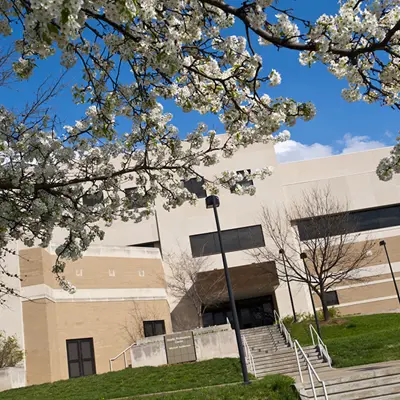
May 1, 2015
At its May 1 meeting on campus, the University of Southern Indiana Board of Trustees heard a report on the outcome of the 2015 Indiana General Assembly and a new two-year state budget. Cindy Brinker, vice president for Government and University Relations, provided a summary of the legislative session.
Summary highlights included:
The University also will hold a public hearing in the next 30 days to discuss proposed tuition and mandatory fees for 2015-2017.
A full summary of the biennial budget can be found at www.usi.edu/govrelations.
New Degrees
The board also approved two new degree programs, a Bachelor of Science in Respiratory Therapy and a Master of Arts in Second Language Acquisition, Policy and Culture. This marks the third new degree to be approved this year. The board approved a Master of Science in Sport Management at its April meeting.
Bachelor of Science in Respiratory Therapy
USI's College of Nursing and Health Professions will offer a Bachelor of Science in Respiratory Therapy beginning in fall 2016, once approved by the Indiana Commission for Higher Education. The College currently offers a two-year associate degree program in respiratory therapy.
Both the American Association for Respiratory Care and the National Board for Respiratory Care have indicated that the transition from associate degree programs to bachelor degree programs in respiratory therapy will be preferred over the next several years. USI's new degree program is a direct response to the industry's demand for higher educational standards and would enhance the body and complexity of knowledge and skills needed for advanced clinical practice and critical thinking. It also would allow graduates to become more involved in public health, outpatient care, homecare, smoking cessation and case management for asthma, COPD and cystic fibrosis clinics. The program will move beyond traditional teaching in hospital units and prepare graduates to be more involved in providing patient education and coordinating care in cost-effective approaches in multiple settings.
Master of Arts in Second Language Acquisition, Policy and Culture
Beginning summer 2016, USI's College of Liberal Arts will offer a Master of Arts in Second Language Acquisition, Policy and Culture degree, pending approval by the Indiana Commission for Higher Education. The accelerated degree program can be completed in as little as one and a half years and offers two embedded certifications in Cultural Awareness Training and Teaching English to Speakers of Other Languages.
An innovative and groundbreaking professional program, currently not offered at universities in the United States, the Master of Arts in Second Language Acquisition, Policy and Culture degree utilizes a blended mode of delivery; a collaborative approach that includes two USI colleges and three departments; and combined advanced training in second language acquisition, language policy and culture studies. The master's degree is intended to have a local, regional, national and international impact and offers knowledge and skills to teach foreign languages to non-English speakers, and provides professional knowledge that will help shape public policy on multilingualism and multiculturalism.
In other business, the board appointed Steve Bridges, vice president for finance and administration, as treasurer; approved the annual audit plan; approved promotions, retirements and emeritus titles; and reviewed a report on current and proposed construction projects.